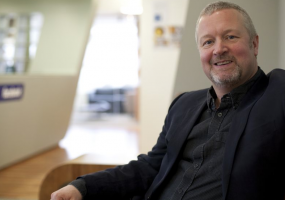The journalism of hate and what we can do about it
28 Oct 2008
Laura Cree writes:
Borden explained the nature of the Institute's purpose as supporting the training, reporting and building capacity in media organisations for local journalists, particularly in conflict hotspots throughout the world. "The best way to learn journalism is to do it", he said, as he stressed the Institute's focus on training and mentoring local journalists towards practical work. In retrospect the Institute, after training journalists in capacity building projects, aims to establish local independent media institutions in crisis areas. Thus far it has done so successfully in Afghanistan, Uganda and now currently in Iraq. When speaking on the topic of ‘journalism of hate’, Borden pointed out that one immediately looks to Anglo-Saxon media, whereas in fact local medias in conflict areas are the epicentre of journalism that is often "used as a tool to create conflict, bloodshed and genocide". He explained that 'journalism of hate' can act as a form of propaganda in mobilising society by depicting opposition with falsities. "Media has been used as an instrument; it's not media at all really." In terms of a solution, Borden suggests more responsibility in journalism. He hopes that through the Institute, journalists will understand and uphold international journalistic standards, rather than pledging allegiance to slanted local medias. There is an effort to try and create joint teams of international journalists from conflict areas to create networks to try and bolster a professional linkage dedicated to journalistic integrity. Borden is not advocating for idyllic peace and love speeches but for factual journalism, which may bridges societies.




